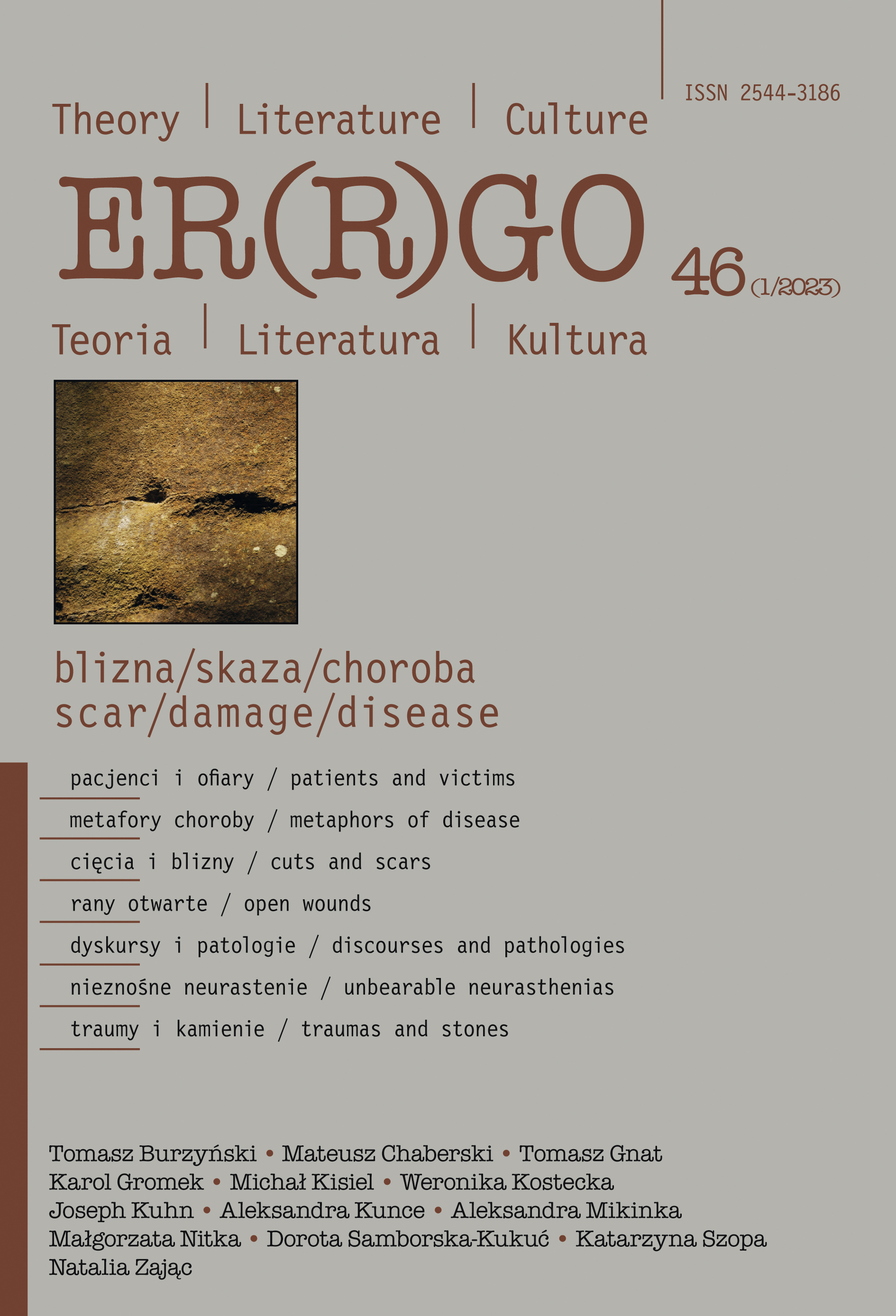Literature of Exhaustion: Representations of Mental Fatigue in Joris-Karl Huysmans’s „Against Nature” and Wilkie Collins’s „The Woman in White”
Literature of Exhaustion: Representations of Mental Fatigue in Joris-Karl Huysmans’s „Against Nature” and Wilkie Collins’s „The Woman in White”
Author(s): Małgorzata NitkaSubject(s): Psychology, Studies of Literature, French Literature, Health and medicine and law, Theory of Literature, British Literature
Published by: Wydawnictwo Uniwersytetu Śląskiego
Keywords: mental fatigue; exhaustion; neurasthenia; Beard; Huysmans; Collins
Summary/Abstract: A phenomenon known well before the onset of modern society, registered as a medical term not until the second half of the 19th century, when physiologists and psychologists inquired into physical and mental exhaustion resulting from excessive work as well as that which had no work-related etiology. Such condition of the severe mental fatigue which entailed deficiency of nerve-force was defined by American neurologist George M. Beard as neurasthenia. Taking into account scientific studies of enervation, the article examines some late 19th-century literary treatments of exhaustion in Joris-Karl Huysmans’s Against Nature and Wilkie Collins’s The Woman in White to present tchem as peculiar, decontextualized cases of exhaustion for exhaustion’s sake.
Journal: ER(R)GO. Teoria-Literatura-Kultura
- Issue Year: 1/2023
- Issue No: 46
- Page Range: 169-183
- Page Count: 15
- Language: English

